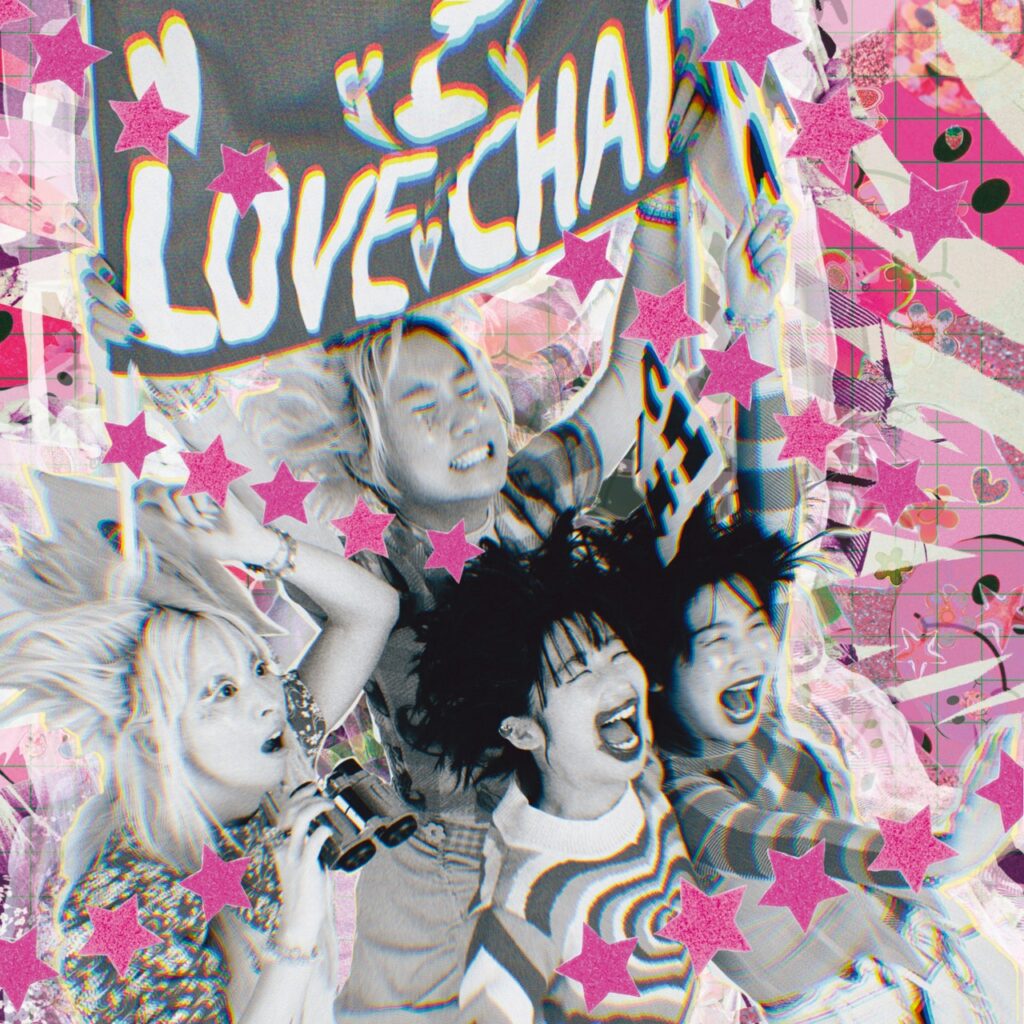CHAI’s songs glimpsed a band seemingly in a perpetual state of youth. Moles and blemishes became irresistible chocolate chips through their eyes; donuts were equally, if not more, important than a passionate crush. But on their new self-titled album, the exuberant Japanese band seems to be growing up, confronting changes in their personal tastes as well as their own bodies. “Every minute we age/More wrinkles than yesterday,” vocalist MANA sings over the effervescent synth-pop of “From 1992.” Despite the difference in her reflection, she embraces her look with confidence: “I don’t care/I want my skin to peek through my jeans full of holes.”
This more mature perspective accompanies a gradual shift in the quartet’s sound. They made their name with speedy, rambunctious pop music infused with the immediacy of punk, their live-wire antics charged with a sense of youthful spontaneity. But on their last album, WINK, they began to venture outside of rock, channeling the casual, feel-good energy of Mac Miller and ‘90s R&B for unhurried pop jams that felt like daydreams. The band further settle into R&B and funk on their self-titled album, luxuriating in the decadent ‘80s grooves of Japanese city pop as well as the hydraulic bounce of bass music.
The dance floor serves as the ground on which CHAI explore their own politics of Neo-Kawaii, reclaiming beauty standards and self-love in their own image. “PARA PARA” is a sultry electro-disco anthem for a night out; the band turn their bedroom mirror pep talks into self-empowering hooks. “I should practice my kissing,” MANA sings in the chorus, as if to manifest what’s in store for her later. She leans into vanity on the bouncy, elastic “LIKE I NEED,” snapping selfies to fish for attention on Instagram. At its best, the peppy dance production can sound as invigorating as their old punk music.
CHAI’s more explicitly political efforts unfold rather predictably, their messaging losing power as they paint in broad strokes. The riotous new wave statement “NEO KAWAII, K?” is built to cause a scene, but its instructional lyrics can feel flat. The stomping funk number “We the Female!” can seem similarly one-dimensional; its all-for-one hooks—“I’m human, how about you?” and “Mighty, yet feminine”—echo as shallow celebrations of womanhood. CHAI’s music resonates more when they get more personal, like on the sparkling album closer “Karaoke,” which conveys their tight-knit connection. As they muster the courage to sing their favorite songs, they reveal the messiest versions of themselves, the band at their most honest and compelling.
All products featured on Pitchfork are independently selected by our editors. However, when you buy something through our retail links, we may earn an affiliate commission.

